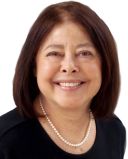ADHD
An Extreme Approach to Ending Temper Tantrums
Shockingly, children are being prescribed potent anti psychotic drugs.
Posted March 19, 2013
I hear the same story more and more frequently. Parents come to my office in desperation because their child has been prescribed Risperdal or another antipsychotic drug for nothing more than temper tantrums or bad behavior. Often, stimulant medications like Ritalin or Adderall were prescribed first for their child following a diagnosis of ADHD. But when these drugs did not help the child, antipsychotics were the next course of action.
Whereas many parents are surprisingly comfortable with stimulant drugs, when they do a bit of online research about antipsychotics they find cause to put their foot down. "I'm not giving my daughter that drug," said one despairing mother, whose eight-year-old daughter had taken one stimulant after another after she had been diagnosed with ADHD. None of the stimulants had helped her settle down and so her doctor finally prescribed Risperdal. The mother did her homework on the dangerous side effects of this drug and finally opted for family therapy as a last resort.
As it turned out, this child did not need stimulant drugs--much less an antipsychotic. What she needed was firm and consistent discipline with her parents on the same page. True, accomplishing this was not an easy process. The parents had to argue their way through three months of therapy sessions, taking precious time out of their busy schedules. But eventually, the parents changed their manner of disciplining their daughter, and her behavior improved to be within the spectrum of normal--without Risperdal on the menu.
But stimulant drugs are bad enough. Although American doctors and the American public have grown comfortable with prescribing Ritalin and its sister stimulants for children, this is not the case everywhere. In France, for example, cautiousness about prescribing stimulants is growing into national outrage. In a 2011 study, French doctors calls Ritalin a "national catastrophe" and even a "national Haulocaust." In the same study, Dr. Anne Marie Block points out that Ritalin has the "same dependency profile as cocaine." Another doctor says Ritalin should be no more legal than cocaine or other illegal drugs because it is an amphetamine with highly addictive qualities. And, bien sur , amphetamines should not be prescribed to children.
In a Psychology Today blog, Christopher Lane discusses the rise of a movement among French doctors called "Stop DSM." These physicians have become alarmed that the American epidemic of prescribing amphetamines to children will soon spread to France. These doctors point out that there is no actual scientific distinction between Ritalin and drugs that are illegal both in France and in the United States. As Lane quotes, “the distinction between licit and illicit drugs is not based on any consistent scientific basis.”
The doctors in "Stop DSM" believe that the forthcoming DSM-5 lacks a sound scientific basis. Many American psychologists, psychiatrists, and therapists are beginning to come to the same conclusion themselves. Most noteworthy among them is psychiatrist Allen Frances, M.D., lead author of the previous edition of the DSM, the DSM-IV and fervent Psychology Today blogger.
As I pointed out in my blog, "Why French Kids Don't Have ADHD" (which has been viewed by more than 3 million people), French doctors look at psychosocial and nutritional causes for ADHD, rather than positing a mysterious biological cause that has never been discerned by scientific research. Accordingly the treatment for children with ADHD is to address the psychosocial causes for the problem in the child's family or school situation or rule out food allergies or sentitivities that might be affecting the child's behavior. Medicating children with stimulants is only an extreme last resort in France--which explains the low rates of ADHD diagnosis and stimulant prescription for children in that country.
I think that it is time for American parents to look beyond our borders before giving children amphetamine drugs like Ritalin or, far worse, antipsychotics like Risperdal. In addition to informing ourselves about French parenting practices in Bringing up Bebe and Bebe Day by Day, American parents would benefit by reading what French doctors are saying about the medicines that are being prescribed for children. Only when parents become informed about the cultural catastrope of drugging children can the kind of cultural change that we need come about.


